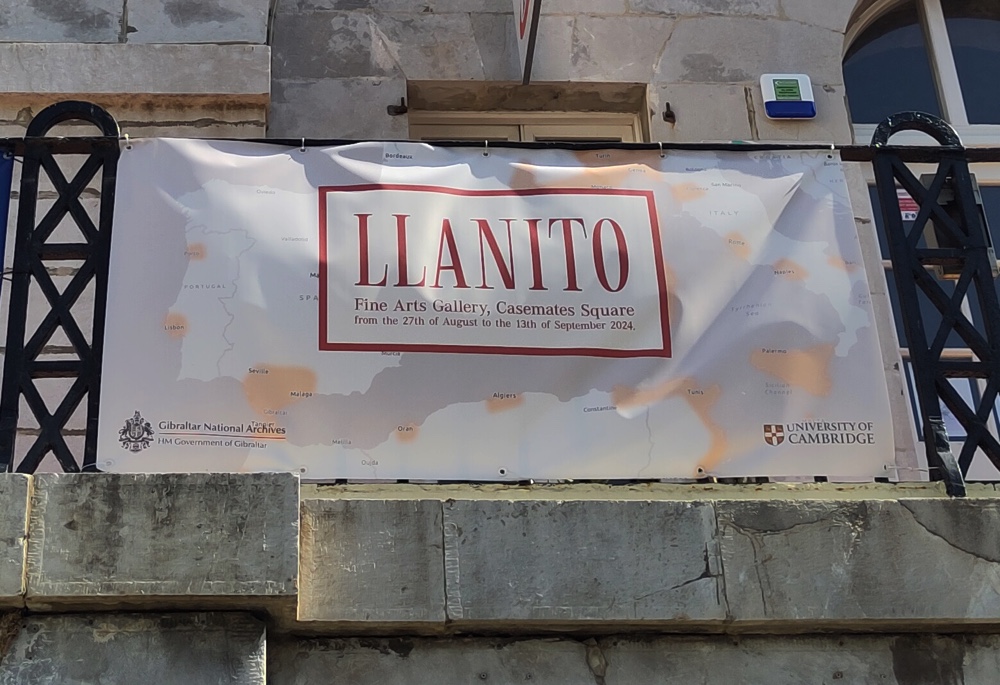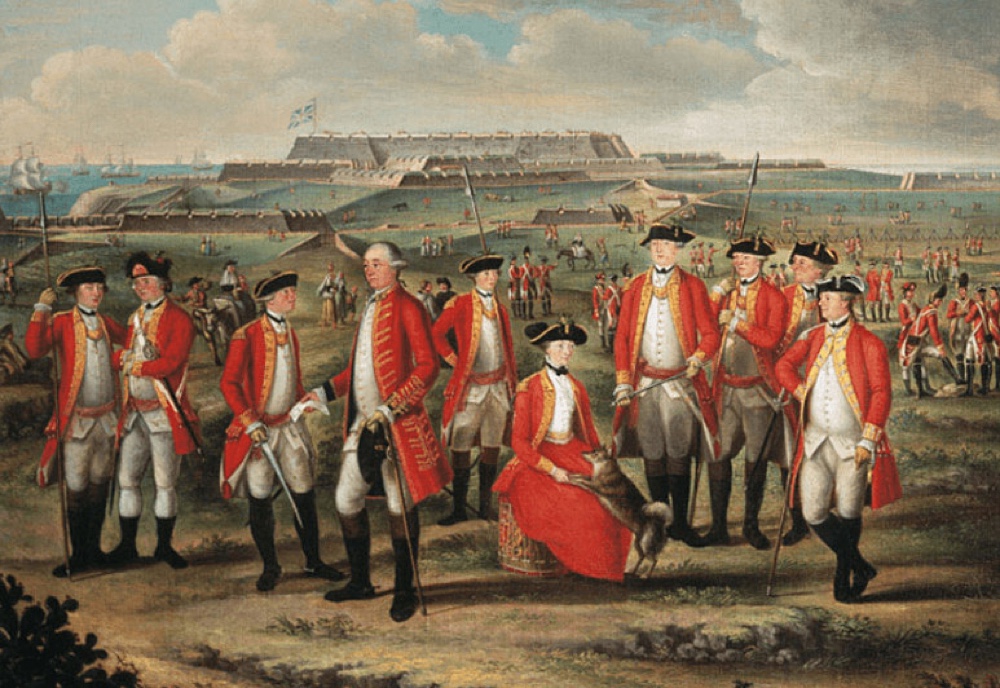‘Every house has its John, its Joe and its donkey’ (popular Catalan saying)
Anyone who is even remotely familiar with the story of Gibraltar has surely heard or read about Gibraltarians being referred to by the word ‘Yanito’ or ‘Llanito’. As often happens with colloquial or unofficial demonyms, their origin is lost in time and, in the absence of a solid explanation, other theories about their source or origin begin to circulate, waiting their turn to be confirmed and sanctioned. In this specific case, there is already an immediately obvious difficulty which can be seen from the two ways of spelling the term, one that is also to be found without the diminutive ending – ‘Llani/Yani’.
There are, of course, several theories to explain this nickname for ‘Gibraltarians’, but three main ones usually crop up.
One of them refers to a supposedly sarcastic or ironic intention on the part of the people of the Campo de Gibraltar region when specifically referring to the inhabitants of the Rock, a place which is, precisely, famously not flat (llano) at all.
There is another theory that maintains that it could be derived from the proper name Gianni (Giovanni), given the large Genoese community that filled the void created by the earlier inhabitants of Gibraltar who left the city following the Anglo-Dutch occupation in 1704.
A third one, along the same lines as the second, seeks to explain the enigmatic demonym as deriving from the name Johnny (John), very common in the English language and probably one of the most common among the British troops garrisoned at the fortress.

Beyond the first hypothesis, between the last two there are elements that can tip the balance towards a specific one. The Gibraltarian translator and linguist Brian Porro, in a personal communication, finds it unconvincing to derive Jani (his preferred spelling) from the Ligurian first name because in the British censuses of Gibraltar in the 18th Century the number of entries for the name ‘Giovanni’ or ‘Gianni’ are not so great. The researcher Neville Chipulina provides specific data: “A quick check through the census of the population taken in 1777 reveals that not a single person of Italian descent –and there were many including a hell of a lot of Genoese– had Giovanni as a first name. By 1791 there were 13 and in 1878 only 10. During my research into my own genealogy, I came across the first names of literally hundreds of relatives and close friends all of whom were originally from Genoa. Not a single one of them was called Giovanni. In other words, there were simply not enough of us called Giovanni to make the name synonymous with an entire population.” Therefore, everything suggests that it could rather be a derivation of the name Johnnie, as pronounced in English, with its ‘wider’ sound for the letter ‘o’ three hundred years ago.
If the term was initially applied to the English soldiers assigned to the fortress, this implies that it must have been coined by the civilian population within the Rock itself or on the other side of the border. A quotation collected by Chipulina from the book Scenes and Sports in Foreign Lands (1840), written by Major Edward Napier, seems to indicate this: “If at the last village we were annoyed by dogs, here we were equally so by a set of ragged urchins, offering their services to hold our horses whilst we refresh ourselves at the fonda, and assailing us with incessant cries of ‘Johnny, Johnny’ . . . the appellation bestowed near Gibraltar on every Englishman”.
The fact that this same etymological pattern also appears in other parts of the world and at a similar time gives credence to this third hypothesis. In the Canary Islands, where contact with British sailors and soldiers was constant and intense during the 19th and 20th Centuries, the term choni is very much alive, defined by the Diccionario Básico de Canarismos (Basic Dictionary of Canary Island Usage) as ‘British tourist and, by extension, a tourist from other countries of central and northern Europe’ and by the Diccionario de la lengua española of the Real Academia Española (RAE) as ‘a foreign tourist, especially an English-speaking one’. The RAE entry specifies, in addition to the colloquial and local origin of the word, the gives its etymological origin: ‘From the English Johnny.’

Much further away than the Canary Islands, on the other side of the Atlantic, by a parallel process, Americans are also known by the nickname (often used pejoratively) of Yankees. What lies behind the use of the term Yank/Yankee is just as unclear as with yani/llani/jani, but all inquiries into the origin of the name land on the same original first name – John – the Dutch first name Janke (the diminutive form of Jan), which was common among many of the Dutch settlers present in the 18th Century in the New England area.

But perhaps it is not necessary to go so far or sail across the ocean to find arguments that help a little to unravel the question over the term ‘yanito’. In fact, if we return to the Mediterranean and, more specifically, to 18th Century Menorca, among the numerous anglicisms that entered the variant of Catalan spoken on the island during the eighty years of British domination there is one word that stands out strongly in this story, and that is the word jan. In Menorcan, in fact, this word has just about remained in until today, especially in some fossilized expressions that make unequivocal reference to the English, such as ‘back in the time of the Jans’. The Alcover-Moll Dictionary includes some more examples: ‘Anyone who gets to sell to the Jans | must have gone down well’ (Menorcan popular verse or ditty); ‘Red as a Jan’ (very red in the face); ‘Four Jans and a boy’ (a poor turnout, small crowd). The definition provided for the term in the dictionary entry is very clear: ‘English soldier or sailor.’

This same meaning of Jan is also found far from Menorca, in Tarragona, where, since the War of the Spanish Succession throne at the beginning of the 18th Century there is a cemetery that is known as ‘The Cemetery of the Jans’, intended for the British and Protestants of the city of the time. Adolfo Alegret, in the volume Tarragona a través del siglo XIX (1924), tells us that the pit was intended for the burial of ‘pilots, sailors and other foreign people, who are commonly called in Tarragona Jans, that is, seafarers from distant lands who are not of the Catholic faith’.
Significantly, one of the first graves in the ‘Fossar dels Jans’ or ‘Burial Ground of the Jans’, as the Tarragona cemetery is also known, dates back to the fateful year 1714 and belongs to a military surgeon called none other than John Jones. This brings us directly to the etymological origin of Jan which the eminent philologist Joan Coromines tells us about in his magnificent Diccionari Etimològic i Complementari de la Llengua Catalana: ‘It comes from the English John, a name that is very common among them, and which in that language is pronounced with a very open o.’
The reference to the phonetic quality by Coromines is neither out of place nor merely anecdotal. Another renowned linguist, Professor David Crystal, stated something very similar in reply on the same point to the aforementioned Brian Porro: ‘Certainly the vowel used in Johnny had a more open articulation in the 17th Century, as evidenced by alternative spellings of o and a in certain words. And of course it is this more open pronunciation that we hear in American English today, where hot sounds more like hat to British ears.’ It is a pronunciation also heard in West Country English.
It is no surprise, then, that the journalist Miguel Vermehren, in an article published in November 2018, wondered whether the Menorcan Jan could not have something to do with the origin of the word yanito: ‘Another surprising contribution from Menorca could be the origin, or at least one of the possible origins, of the term llanito or yanito. This demonym, which is used to refer to the Gibraltarians and their language, is often explained as a corruption of the names John or Gianni, common among the inhabitants of the Rock at the time. In the Catalan of Menorca, the English were often called Jan (with a similar origin), a word that could have reached Gibraltar to refer to its inhabitants.’
Through books, articles and even exhibitions it has already been clearly demonstrated that the Menorcans who for almost a century between 1730 and 1830 went to seek a better life in Gibraltar contributed, together with the English and the Andalusians, the Genoese, the Sephardic Jews and the Maltese, to creating a unique identity that defines the Gibraltarians. Who knows, then, whether those same sailors and craftsmen from the mouth of the port of Mahon also contributed, to a greater or lesser degree, to identifying and naming the Janis.
This article was translated by Brian Porro and published on October the 14th 2024
This article appeared in the Gibraltar Chronicle on November the 29th 2024

Comments are closed